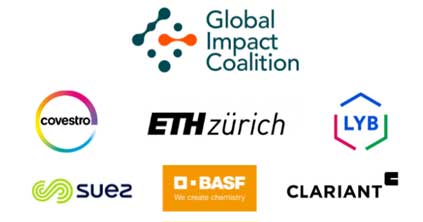Green news: Carbios to resume stalled PET biorecycling plant in France; GIC launches R&D collaboration for waste-to-chemicals project

French firm Carbios says it expects to resume construction of its PET chemical recycling plant in Longlaville, France, by the end of 2025 and with a revised timeline. The French biotech company said France’s new rules for locally produced recycled plastics motivated its recommitment to the project. This new rules are a lever to accelerate customer adoption of Carbios’s technology as it enables them to benefit from a EUR1,000/tonne bonus for including biorecycled plastics derived from hard-to-recycle waste into sensitive-contact packaging (e.g. food packaging), it adds.
Carbios adds it will thus be able to supply its packaging clients, selling on the French market, with rPET with a quality equivalent to virgin PET (free of contaminants, transparent, and with excellent material properties), offering characteristics compared to mechanically recycled products, at a comparable net price, while processing complex waste that is currently not recycled.
The resumption of construction is expected before end of 2025, subject to securing the necessary additional funding. Pre-sales of products from the future Longlaville plant are progressing, supported by a favourable regulatory environment plus in addition, the company has secured a significant portion of its raw material supply and signed polymerisation contracts.
Carbios plans to finance the Longlaville plant through: EUR42.5 million in public funding, including a EUR30 million grant for which an agreement already has been signed with ADEME, that will allow disbursements to begin once the project resumes, and EUR12.5 million in regional aid, for which the European Commission has approved the chemical recycling aid scheme.
It also says that based on a detailed study of the project, many private investors have expressed “strong interest” and given agreement on principle for the required investment amounts.
In parallel, the technological maturity, engineering documentation, and ongoing negotiations with various partners, allow Carbios to remain fully committed to the commercialisation of licenses for its technology.
In other news, Global Impact Coalition (GIC), a CEO-led coalition committed to advancing a circular, net-zero future for the chemical value chain, has launched a research collaboration with scientists from ETH Zurich and five GIC member companies: BASF, Clariant, Covestro, LyondellBasell, and Suez. The aim is to explore synergies between traditional chemical processes and emerging technologies that convert waste into circular chemicals, specifically focusing on the possible direct conversion of waste into chemicals in a more sustainable approach.

Direct conversion is a promising technology that can transform complex waste streams into valuable C2+ chemical compounds, such as ethylene and propylene, through gasification. These compounds are essential building blocks for products like contact-sensitive plastics, detergents, paints, and textiles. The process could offer a lower emission, cost-effective alternative to fossil-based feedstocks.
Researchers at ETH Zurich will conduct environmental and techno-economic assessments of the direct conversion process. Findings from these studies will help assess the viability of a proof-of-concept and identify conditions for any future pilot-scale efforts.
“The chemical industry must shift from fossil-based inputs to renewable and circular carbon sources. Through our collaboration with GIC on Direct Conversion, we’re exploring how to transform waste into essential chemicals, an important step toward operating within planetary boundaries,” said Professor André Bardow, Chair of Energy and Process Systems Engineering at ETH Zurich.
The collaboration will explore key scientific and technical challenges in waste-to-chemicals conversion, including processing heterogeneous waste materials and integrating new feedstocks into existing chemical value chains. By combining GIC’s industry knowledge with ETH Zurich’s research expertise, the project aims to build a shared understanding of opportunities and constraints in this emerging field.
As convener of the initiative, GIC played a key role in identifying this research priority, facilitating dialogue between industry and academia, and coordinating member company participation to ensure real-world relevance and applicability of findings.
(PRA)SUBSCRIBE to Get the Latest Updates from PRA Click Here»










